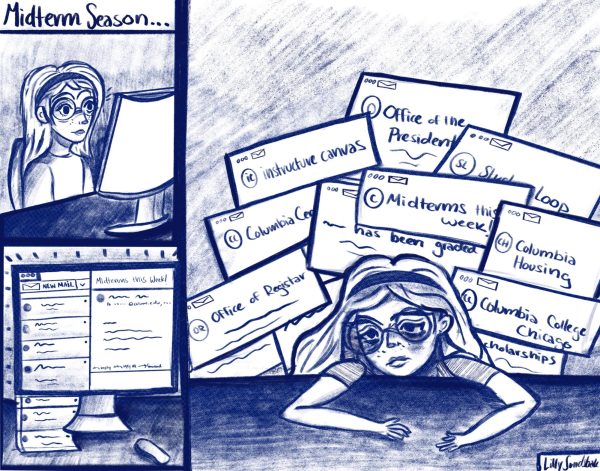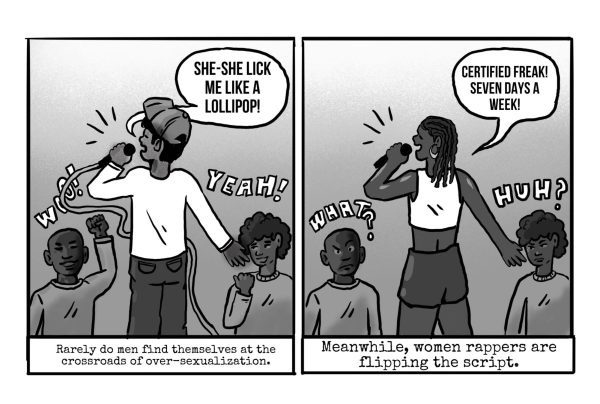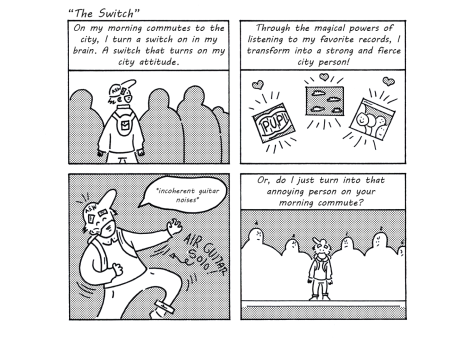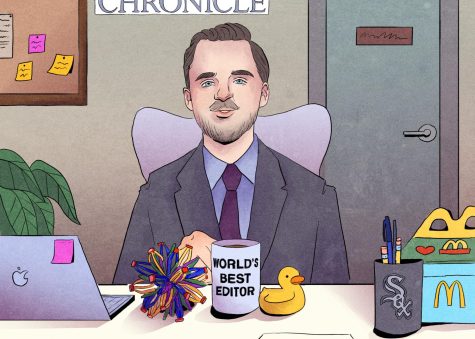College needs to minimize book cost in weak economy
October 13, 2008
The struggling economy and recent credit crisis have left many Columbia students wondering how they will finance their college education. Like many Americans, students are looking for ways to cut corners and trim unnecessary expenses.
With the help of professors and faculty, one opportunity to limit expenditure is by making textbooks more affordable.
Students recognize that the exorbitant cost of textbooks is not limited to Columbia, but Columbia faculty members need to work more closely with students to help keep costs as low as possible.
In some instances, such as foreign language classes, professors do not choose the textbooks used in their own classes. Carmel O’Kane, a Spanish professor in the Humanities, History and Social Sciences Department, said she has no control over the required textbooks for her class. O’Kane said the department chooses the assigned books. The inability for professors to choose their own required textbooks is a huge disservice to them and to students.
All too often professors are required by their departments to use textbooks that do not coincide with their individual teaching methods. When professors are required to use texts they don’t feel comfortable teaching from, the books are frequently never cracked open because they are not incorporated into lesson plans. This equates to a huge waste of money for students. Nothing is more aggravating than spending upward of $100 on a textbook that is never required to be read. Professors who teach classes with department-assigned books need to be mindful of student budgets. They should review texts chosen by the department, and if they don’t plan to use the books, they need to communicate to their students before they have purchased their books.
In cases where professors are able to choose their books, they need to remain mindful of cost concerns. Professors who require students to purchase books that are rarely used as part of the curriculum need to consider different supplemental learning materials. Additionally, if professors decide the most effective way to teach their class is without a textbook, they should not be persuaded otherwise or reprimanded by department chairs, pending they have adequate teaching supplements. For every textbook sold at the bookstore, the college receives a commission. Department chairs are well aware that making money is always a priority.
Columbia’s administration also needs to do their part in helping keep textbook costs low.
The college’s contract with the bookstore Follet is up, and administrators need to focus on finding a new vendor that will provide a better timeframe for purchasing books, a longer period for returning and selling back texts and that doesn’t succumb to book publishers’ pressure to carry new editions of core books every year. The bookstore could overcome this pressure by providing a larger stock of used books. Each time a “new” editions of a textbook replaces the required text, the cost is driven up. However, the material in the book rarely changes, and when it does, the change is miniscule.
Columbia administration can also help students overcome cost concerns by working to spearhead the use of online publications such as e-textbooks, online journals and textbooks converted online to PDFs. But before that can happen, the college needs to assess each professor’s computer skills. We have many professors who cannot even understand the fundamentals of Oasis, thus would be unable to conceptualize online publications. As the administration works to train existing faculty and hire more technologically proficient professors, the college should be able to begin spearheading the use of online materials.
SGA has yet again proclaimed that this is one of their top priorities, but when are we going to see results?
The current economic times are hitting everyone hard and we need help. It is frustrating to know that with each textbook sold at the bookstore, the college receives a commission. Columbia needs to set aside its burning desire to receive those kickbacks and help students fund their ever-increasing cost of tuition in a continuously sluggish economy. The discussion of textbook affordability is raised every year, but this year help is even more crucial as students are up against one of the worst economies they have ever seen.

















